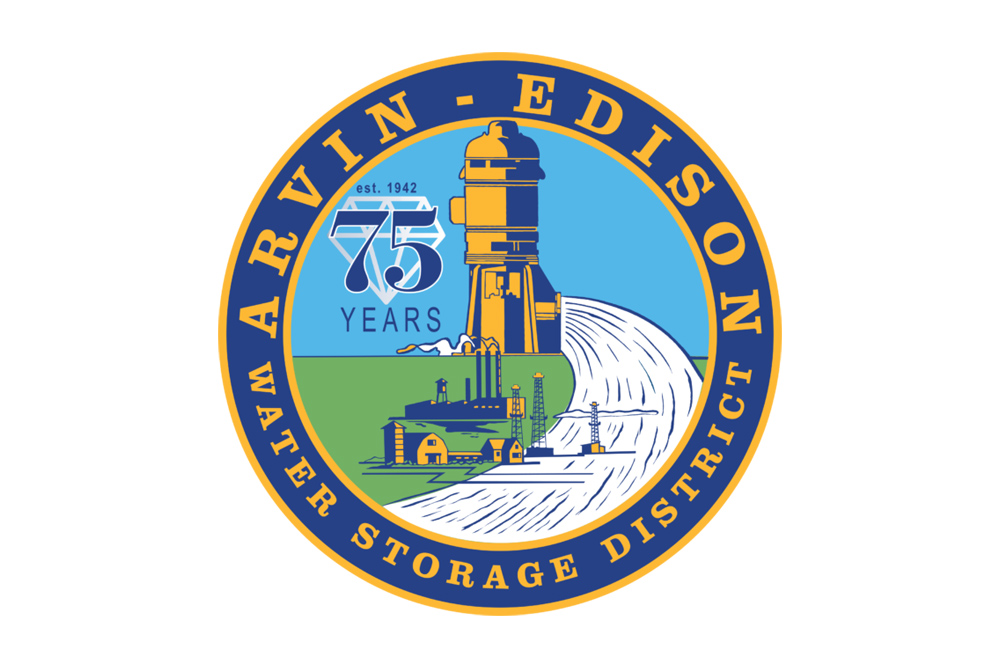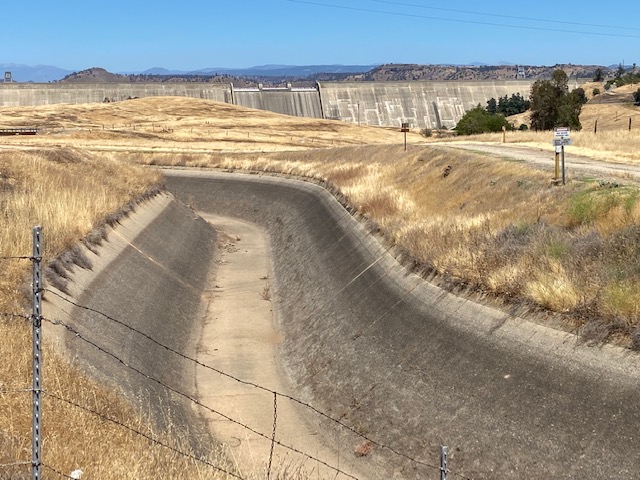The State Assembly Committee on Water, Parks & Wildlife is holding an informational hearing on Tuesday, February 28th, 2023 at 9:30am in the State Capitol Room 444 and by telephone and online. However, as of noon February 27th neither the call in number to listen and comment or the online link are available to the public. Please check https://waterwrights.net/events/ as we will update the information as soon as we receive word from Sacramento. Also try https://www.assembly.ca.gov/schedules-publications/todays-events
https://waterwrights.net/events/ as we will update the information as soon as we receive word from Sacramento. Also try https://www.assembly.ca.gov/schedules-publications/todays-events
The Hearing
The hearing’s title is “Adapting Water Rights to our 21st Century Climate.” Assemblywoman Rebecca Bauer-Kahan, Dem-16 who lists district offices in San Ramon, chairs the committee. San Ramon gets its water from the State Water Project and East Bay Municipal Utilities District.
Her Assembly website states Bauer-Kahan has;
- Introduced legislation to improve access to campsites,
- Quotes her as a saying “We are outlawing misinformation,” in regards to her bill to get around a US Supreme Court ruling that crisis pregnancy care centers in California as a First Amendment right are not obligated to provide information in favor of abortions,
- Strengthen oversight by the State Water Resources Control Board
- Authored a bill eliminating the retail “pink tax” wherein women’s products are more expensive than men’s.
Assemblyman Devin Mathis, Rep-33 is vice chair and is from the San Joaquin Valley. Of the 15 committee members four, including Mathis are Republicans. Our old friend Assemblyman Steve Bennett is also on this committee.
When you go to the committee home page https://awpw.assembly.ca.gov/ you can submit a position letter and click the tab for issues. But you won’t find any issues after 2016 and most of it is in regard to Prop One.
The Agenda
Opening remarks will be made by Bauer-Kahan then Ellen Hanak and Brian Gray from the Public Policy Institute of California will speak on the subject of “21st century climate, 19th century system.” Then two State Board employees, Erik Ekdahl – Division of Water Rights and Yvonne West – Office of Enforcement with address the question; “How do we modernize water rights administration?”
Next speaking on “Examples of challenges to water rights administration” will be Arron “Tony” Hockaday – Council Member of the Karuk Tribe, Elizabeth Salomone – District Manager Mendocino County Russian River Flood Control & Water Conservation Improvement District and Felicia Marcus – William C. Landereth Visiting Fellow, Stanford University, Water in the West Program. Marcus is the previous Chair of the State Board.
Improvement District and Felicia Marcus – William C. Landereth Visiting Fellow, Stanford University, Water in the West Program. Marcus is the previous Chair of the State Board.
The last group of speakers before public comment will be speaking about “Proposals for modernizing water rights administration.” Richard Frank – Professor of Environmental Practice & Director of California Environmental Law & Policy Center, UC Davis School of Law, Jennifer Harder – Professor McGeorge School of Law, David Guy – President Norther California Water Association and Russell McGlothlin – Water Resources Attorney with the firm of O’Melveny & Myers LLP of Santa Barbara.
Background
Along with the agenda the Committee posted an eight-page background document titled, “Adapting Water Rights to Our 21st Century Climate.” I shall cherry pick through it for you.
The introductory paragraphs states, “The origins of the legal framework for California’s water rights system date to the 19th century when California first became a state and the predominant economic activity was gold mining. This legal framework protects private rights to water and encourages water right holders to put water to “beneficial use.” Later, as the state developed in the 20th century, an enormous system of water infrastructure was built to capture water and store it for later use, including during times of scarcity and for conveyance to arid parts of the state.” So far so good. Emphasis mine.
Weather
The background goes on to state the legal framework served reasonably well but due to California’s dramatically larger population and the impacts of global climate change it’s not meeting today’s challenges. There are cries including those by Governor Gavin Newsom for the modernization of the water rights system. It states the state’s climate is different than a century ago when California’s water law first developed. It states, “California has experienced its two most severe dry periods on record since 2000 (2012-2016 and 2020-present). . .” It appears this needs an update considering the climate change that’s taken place since December of 2022.
than a century ago when California’s water law first developed. It states, “California has experienced its two most severe dry periods on record since 2000 (2012-2016 and 2020-present). . .” It appears this needs an update considering the climate change that’s taken place since December of 2022.
If all of history is any indication Earth’s climate has, is and always will change. The background document states, “It is increasingly clear that climate change will stress water resources and its management like no other time in recorded history.” California’s recorded history goes back to 1542 when Spanish Explorer Juan Rodríguez Cabrillo first laid eyes on the part of the world now known as California. It’s not really clear when accurate weather records were first started; depending on the source it could be anywhere from 1870 to 1914. (Update since original publication – Our many Portuguese friends have let us know Joan R. Cabrillo was Portuguese flying under the Spanish flag. And yes, the name is Joan but there is diacritical mark over the vowels and anyway, he was a he.)
Water Law
In 1886 the California Supreme Court ruled on the Lux v. Haggin suit (Kern County water rights) determining both riparian and appropriative rights are legitimate with riparian having priority of appropriative “in most instances.” The document lists other court cases and legislation. The Water Commission Act was passed in 1913 and the Water Commission (later to become the State Board) had sole jurisdiction to issue a right to use unappropriated surface waters. This is where pre and post-1914 water rights became the dividing line. Pre 1914 rights holders didn’t have to get a right issued by the State Board.
unappropriated surface waters. This is where pre and post-1914 water rights became the dividing line. Pre 1914 rights holders didn’t have to get a right issued by the State Board.
The document refers to tribal water rights and federal reserved rights. The US Supreme Court ruled when the federal government reserves land for tribes, “it implicitly reserves sufficient water on that land to accomplish the purposes of the reservation.” In most cases federal reserved rights are not quantified. For a tribe to get this water right it has to be adjudicated by a court and authorized by Congressional action. The document states, “Despite having 110 tribes in California, only a handful of settlements have developed.” Less than a third of these tribes are on reservations.
Strategy
The document states in August of 2022 Governor Newsom released his water strategy with predictions that California’s water supply will decreased by 6-9 million acre feet annually due to climate change. Newsom’s report listed recycling, desal, stormwater capture, conservation and adding four million acre feet of surface and groundwater storage.
Modernizing water rights is also part of the gov’s strategy. He wants water rights administration modernized for, “EQUITY, access, flexibility and transparency.” Emphasis mine because we know that equity in this context is a Marxist term.
In 1977 then Governor Jerry Brown created a commission to review California’s water rights law. This commission issued a report in 1978 but no action was taken. The document lists a number of reports the committee says it reviewed in preparing for the hearing one written by Frank and Harder.
The document also states the, “Authors of these reports believe that California’s water laws need to be reassessed to address today’s challenges; safeguard the health, safety, and livelihoods of California’s 40 million residents; support its economy; and protect California’s ecosystems. Water crises, like drought and flood, further highlight aspects of California’s water rights and governance that could perform better to promote EQUITY, access, flexibility, and transparency.” Once again emphasis mine.
So, it appears this hearing is only seeking background information from those who want to change water rights. Despite property rights being enshrined in the Constitution there was no mention of that in the list of documents. The only speaker with a connection to the active engagement of agriculture is David Guy of NCWA. It appears everyone else deals in the theoretical. Why no farmers or ranchers or current water rights holders or those representing their opinions were invited to speak?
Recommendations
Recommendations were proposed in the background document. Do most legislative hearings list proposed recommendations before the hearing? I’m asking. I just sat through a Farm Bill listening session and the panel of congressmen from both parties didn’t list any recommended proposals that I heard.
Streamlining oversight is the first recommendation listed and surprise, surprise it included, “. . . bringing all surface water users under the State Water Board’s permitting system, establishing more EQUITABLE fees across water rights holders, and restructuring current governance by clarifying the roles of different water agencies and bringing them under a single water authority.”
Here’s some more on streamlining from the background document, “To close gaps in State Water Board authority, proposed reforms suggest giving the State Water Board the ability to issue orders to stop water usage in the time between a notice and hearing for misused water (i.e., interim or injunctive relief orders) and investigate whether water rights claimants or diverters have verifiable water rights. These additional responsibilities and labor would need to be accompanied by sufficient funding. To streamline water dispute adjudication, some suggest appointing regional water law experts to navigate the complicated system, similar to the water courts systems in Montana, Colorado, and Idaho.” Emphasis mine.
Next listed was improving the accuracy and transparency of information. It states meaningful water oversight is a challenge because the data isn’t timely. High quality, real-time tracking of endangered fish, I’m sorry, it stated high quality, real-time tracking of water diversions and “agile regulation and enforcement” are crucial for administering rights and environmental protection. No mention of economic protection. It states the State Board has invested $30 million to digitize existing paper records to build a digital data management system. So, it’s spending $30 million of the taxpayers’ dollars to scan?
Here’s a little addendum. The document states, “In addition to this technical data, some proposals suggest compensating non-profit, non-governmental organizations, and tribes for their reasonable and necessary expenses in proceedings before the State Water Board where their expertise contribute significantly to the State Water Board’s decision.” No word on compensating water rights holders for their expert contributions.
Under addressing environmental water needs there’s a handy suggestion that water trades and transfers be conducted after a comprehensive environmental review for a specific geographic area, hydrological zone or conveyance system instead of individual review. It says it would expedite water transfers.
The last class of recommendations was called increasing flexibility under changing conditions. Here’s a twist it stated several reforms have suggested explicitly including underground storage (aquifer recharge) as a beneficial use.
The summation paragraph states the common thread in these proposals is to increase coherence, transparency and flexibility, while protecting water right-holders and public values. I hope they determine what part of the public and if a value trumps a right. The final sentence was, “The reports reviewed by this Committee largely agree that targeted, incremental changes will be less disruptive, more legally defensible, and easier to implement than a major overhaul of the state’s complex water rights system.” Chip away a little here and a little there.
Some Orwellian Things Going On
There is an NGO named Restore the Delta. It was at one time a respected Delta advocacy group but has morphed over into another NGO with radical race and ecology goals. According to its IRS 990 filing its Vice President is a very Caucasian former state senator named Mike Machado. President Barbara Barrigan Parrilla testified before the State Board’s Racial Equity Hearing about how California’s water law is based on genocide.
RTD released a statement to “inform the “Adapting Water Rights to our 21st Century Climate” hearing. This statement included, “. . . the results of a California water rights analysis by race, completed by employees with the Department of Water Resources, but deleted from the agency’s website soon after posting.” The statement included a link to a PDF of the DWR report.
This deleted report is titled “Who makes decisions about California’s water?” and bills itself as, “A data-based look at the race and gender of the people who control California’s water at the state, local and individual level.” It states it was presented by Megan Fidell and Paul Shipman and dated January 9, 2023.
We’ve gone over this before; Taxpayer dollars spent on state employees profiling elected officials and citizens. Fidell and Shipman’s report states, “At the State level, we used the State Workforce Analysis to examine the race and gender of water-related state executives. At the local level, we coded about 1,500 directors of water agencies for race and gender and then compared each board to the race and gender of the agency service areas. At the individual level, we coded nearly 14,000 individual rights holders for race.”
In previous statements Fidell said she was going to irrigation and water district websites to try to ascertain the race and gender of board members. Why not call them and be sure of a board member’s race and sex? Was this report posted on DWR’s website? How did a radical NGO get access to it if it was posted and then immediately deleted?
On page two it is stated 1,508 directors were profiled. These directors represented 478 ag water districts, 733 urban water districts and 297 sanitation districts.
Am I the only one who finds it outrageous that government employees are racially and sexually profiling elected officials? It goes from outrageous to downright creepy. Fidell and Shipman went through 13,927 individually held water rights to see how many of them had a white sounding last name. How would Elizabeth Warren, Rachel Dolezal or Dylan Mulvaney have been counted?
This is what it’s come too? A state agency surveilling elected officials and private citizens? I’m waiting for a response from DWR on two questions: what are you going to do with this information? and how much taxpayer dollars did it cost to conduct this exercise? I’ll let you know what I find out.
DISCLAIMER OF RESPONSIBILITY; Waterwrights.net strives to provide its clients with the most complete, up-to-date, and accurate information available. Nevertheless, Waterwrights.net does not serve as a guarantor of the accuracy or completeness of the information provided, and specifically disclaims any and all responsibility for information that is not accurate, up-to-date, or complete. Waterwrights.net’s clients therefore rely on the accuracy, completeness and timeliness of information from Waterwrights.net entirely at their own risk. The opinions expressed in this report are those of the author and do not represent any advertisers or third parties.
ALL RIGHTS RESERVED. Copyright 2023 by WaterWrights.net

































